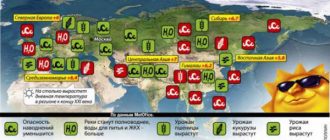 A photo from open sources
A photo from open sources
Intriguing news comes from Antarctica again – scientists first established that permafrost in Antarctica is melting at an accelerating pace, and it’s not related to global warming, RIA-Novosti reports with reference to the journal Scientific Reports. Scientists led by Joseph Levy of Texas University of Austin (USA) collected data on the melting of the underground Glacier in the Garwood Valley, located in the Dry Valleys area McMurdo on Victoria Land in Antarctica. Scientists have discovered that permafrost thawing rate increased from 2001 to 2012 and now approximately 10 times higher than the average rates characteristic of the current geological era. It was previously believed that the underground ice of Antarctica subject to seasonal variations only. However, Levy and his colleagues showed that permafrost in the Garwood Valley is melting, and geological there are no traces of such processes in the foreseeable past. They found that the 400 meter subsurface glacier in this valley is now loses about 5 thousand cubic meters of ice per year and from 2001-2002 years, it decreased by almost 45 thousand cubic meters. Scientists are not associate melting ice with warming. In the Dry Valleys region from 1986 to 2000, there was a cooling, after which the rise there was no temperature. Researchers explain permafrost thawing changes in weather conditions, due to which the amount of solar The light reaching the soil in the area increased. Solar light reflects well from the surface of the glacier, but darker the surface of the earth, under which permafrost hides, absorbs more solar energy. Thick layer sedimentary rocks protects underground ice from solar heat, and thin, on the contrary, heats itself and warms lying under it ice: Melting underground ice changes the landscape, as the soil above it sits down. In some places of the glacier, drawdown since 2001 reached 15 meters. When they add to the influence of sunlight predicted rates of global warming, melting ice and “shrinkage” of the landscape will accelerate, scientists predict.
Antarctica Global Warming






